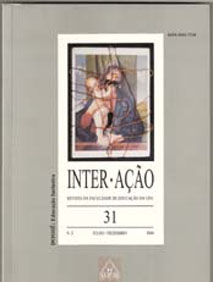UMA LEITURA DA INCLUSÃO A PARTIR DO PENSAMENTO DE PAULO FREIRE
DOI:
https://doi.org/10.5216/ia.v31i2.1257Abstract
Várias condições vêm sendo consideradas como “desviantes” pela sociedade. Ser negro, ser velho, ser criança, ser mulher, ser deficiente representam condições de subalternidade de direitos e de desempenho de funções sociais. É nesse contexto que as relações sociais manifestam-se de diversas maneiras, produzindo as mais variadas formas de preconceito e controle, atitudes contra as quais Paulo Freire sempre se posicionou com extrema veemência. Neste trabalho, foram utilizadas as categorias da historicidade, da inconclusão, da conscientização, da comunhão, do diálogo e da libertação. A postura antidiscriminatória e antisegregacionista de Freire posiciona-o como um dos mais importantes teóricos do movimento de ruptura com o paradigma da exclusão, na busca pela instauração do que hoje denominamos de paradigma da inclusão social.Downloads
Downloads
Published
How to Cite
Issue
Section
License
Inter-Ação uses the Creative Commons Attribution 4.0 License for Open Access Journals (Open Archives Initiative - OAI) as the basis for the transfer of rights. Open access means making documents available on the Internet free of charge, so that users can read, download, copy, distribute, print, search, or link to the full text of documents, process them for indexing, use them as input data for software programs, or use them for any other lawful purpose, without financial, legal, or technical barriers.
Authors publishing in this journal agree to the following conditions:
1) Authors retain copyright and grant the journal the right of first publication, with the work simultaneously licensed under the Creative Commons Attribution License, which permits redistribution of the work with attribution and first publication in this journal.
2) Authors are permitted to enter into additional, separate agreements for non-exclusive distribution of the version of the work published in this journal (e.g., for publication in an institutional repository or as a book chapter), with attribution and first publication in this journal.
3) Authors are permitted and encouraged to publish and distribute their work online (e.g. in institutional repositories or on their home page) at any time before or during the editorial process, as this may generate productive changes as well as increase the impact and citation of the published work.















